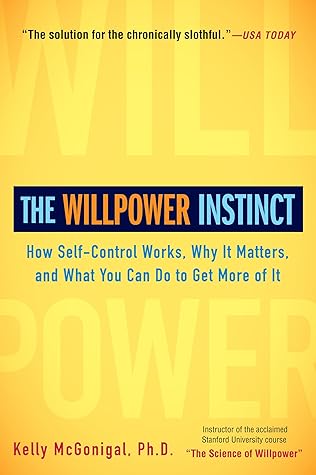More on this book
Community
Kindle Notes & Highlights
Read between
November 13 - November 19, 2021
Self-knowledge—especially of how we find ourselves in willpower trouble—is the foundation of self-control.
To say no when you need to say no, and yes when you need to say yes, you need a third power: the ability to remember what you really want.
To exert self-control, you need to find your motivation when it matters. This is “I want” power.
People who have better control of their attention, emotions, and actions are better off almost any way you look at it.
You need to recognize when you’re making a choice that requires willpower; otherwise, the brain always defaults to what is easiest.
When your mind is preoccupied, your impulses—not your long-term goals—will guide your choices.
Neuroscientists have discovered that when you ask the brain to meditate, it gets better not just at meditating, but at a wide range of self-control skills, including attention, focus, stress management, impulse control, and self-awareness.
Exercise turns out to be the closest thing to a wonder drug that self-control scientists have discovered.
Just as the brain may tell the body’s muscles to slow down when it fears physical exhaustion, the brain may put the brakes on its own energy-expensive exercise of the prefrontal cortex. This doesn’t mean we’re out of willpower; we just need to muster up the motivation to use it.
But when they also asked the participants to remember why they had resisted, the licensing effect disappeared—69 percent resisted temptation.
Yale economist Matthew J. Kotchen has raised concerns that small “green” actions will reduce both consumers’ and businesses’ guilt, licensing larger harmful behaviors.
We need to feel like the kind of person who wants to do the right thing. Moral licensing turns out to be, at its core, an identity crisis.
And so the promise of happiness—not the direct experience of happiness—is the brain’s strategy to keep you hunting, gathering, working, and wooing.
Vowing to change fills us with hope. We love to imagine how making the change will transform our lives, and we fantasize about the person we will become.
many of our problems with temptation and procrastination come back to one uniquely human problem: how we think about the future.
Anything you can do to create that distance will make it easier to say no.
This is a favorite story of behavioral economists who believe that the best strategy for self-control is, essentially, to burn your ships.


